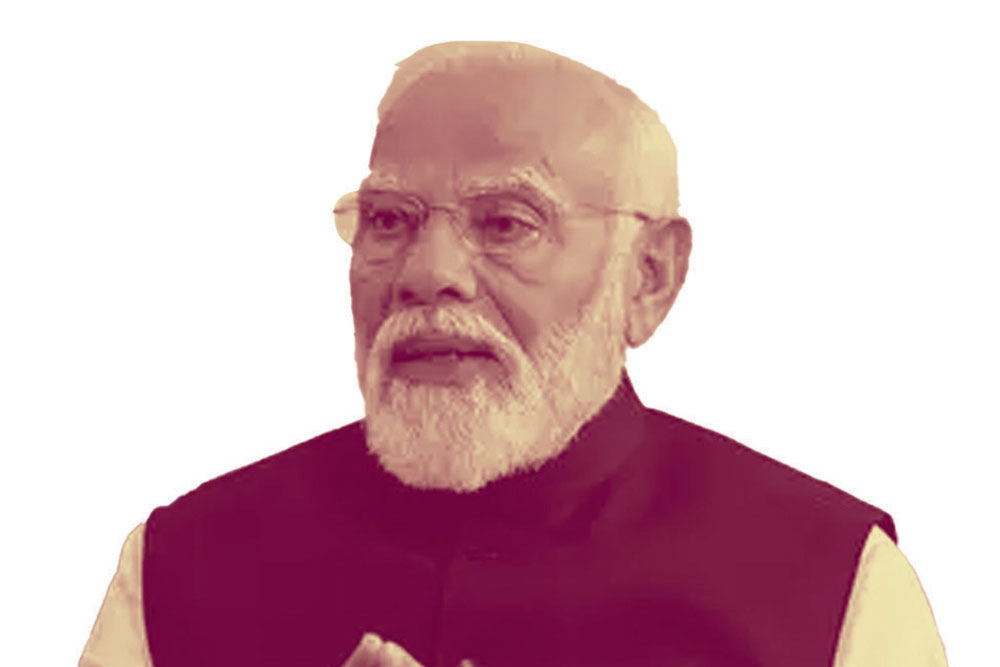Columns | Byline
Desperately Dynasties
The question of Bengal 2024: From the mountain to the sea, who shall it be?
 MJ Akbar
MJ Akbar
 MJ Akbar
19 Apr, 2024
MJ Akbar
19 Apr, 2024
/wp-content/uploads/2024/04/Dynastics1.jpg)
(Illustrations: Saurabh Singh)
MRS INDIRA GANDHI won her most dramatic election in 1980. She became prime minister in 1966 but her era began with a spectacular sweep in 1971, when she rode the promise of ‘Garibi Hatao’ (Eliminate Poverty) to electoral glory.
Birth is magic, but resurrection is a miracle. In 1980, she resurrected Congress from the annihilation of 1977 by crushing the upstart Janata Party, an alliance of non- Congress parties of the north. This is dimly remembered; five decades is a long time in politics. Totally forgotten is that Mrs Gandhi’s election symbol in 1980 was quite different from the one in 1977; a hand replaced the cow-and-calf. For millions of voters, the cow-and-calf had become a symbol of family rule in a democracy, a grim omen of dynasty. Five decades later, dynasty has become epidemic: Congress, SP and BSP in Uttar Pradesh, Trinamool Congress in Bengal, NCP and Shiv Sena (Thackeray) in Maharashtra, Akalis in Punjab, and all regional parties in the south. BJP and the Marxists seem free of this infection, but that too is a comparative rather than comprehensive fact. We shall see if this means anything to voters in 2024.
ONLY ONE PERSON in Bengal has the chutzpah to make his face more prominent on hoardings than that of Chief Minister Mamata Banerjee; her nephew Abhishek Banerjee. Just in case you missed any, he has huge hoardings chasing one another in close proximity over the principal chokepoints in his constituency, Diamond Harbour, at the yawning mouth of the Hooghly (or Adi Ganga, the original Ganga) as it slips serenely into the Bay of Bengal. The distance from the heart of Kolkata is not much more than 60 kilometres but the car journey takes longer than the flight from Kolkata to Delhi. The persistent bottlenecks could be easily resolved with better traffic management and a firm cement divider instead of pathetic and occasional plastic bits, but who cares when you can win elections through ethnic emotionalism rather than effective governance? Poor government means, among other things, the perpetuation of poverty. Poverty is manifest in many ways. It was heart-rending to see the rush for Eid shopping in hut-shops full of tawdry clothes at prices that only the poor can afford.
If you are not inching ahead on this clogged artery, you are speeding. There is a metaphor in this somewhere but I shall leave you to locate it.
THE WINNING MESSAGE at the northern pole of Bengal, in the Eastern Himalayas along the winding mountain road from Kurseong to fabled Darjeeling, is written on a plaque at the Senchal Wildlife Sanctuary. It is simple and startling: Please behave like animals. Enough said; well said. Animals do not strew litter and birds do not drop plastic.

From Tiger Hill we glimpse the peak of Sagarmatha, goddess of the sky, misnamed Everest in English. The rest of the glorious mountain is draped in mist and clouds. We recognise the peak not from previously seen photographs but because it is the only still form on the skyscape.
The political question of Bengal 2024 is: from the mountain to the sea, who shall it be? Predictions are dangerous but what is the point of a column if it doesn’t flirt with danger? The mountains and its adjacent are with Narendra Modi; the east of the river is with Mamata Banerjee. Elsewhere in Bengal, governance will largely trump ethnic appeal. As for the nature of this battle, one is reminded of a saying attributed to the Roman sage Seneca: the law falls silent in times of war.
IF ONE PICTURE is worth a thousand words, then one fact can be worth a thousand stories. A Kolkata newspaper reported on April 10 that the Rampurhat Medical College in Birbhum and Mahakuma Hospital in Bolpur had run out of blood. Why? The regular donors were occupied elsewhere. Where? The newspaper did not specify, but here is my guess: they were making more money from political assignments as the frenzy began to bubble. They will go back to selling blood when democracy returns to hibernation.
FRENZY ENDS UP in newsprint, but does it get votes? Exceptions aside, this election, like its predecessors, will be determined by the parameters of governance, not the variables of sentiment. Hard statistics are more persuasive than an astrologer’s calculations or electoral rhetoric. Over the last five years, India’s growth rate has touched 7.7 per cent, the highest in G20; China is next with 5.2 per cent. Real wages have grown at around 5 per cent a year. Capital expenditure as a percentage of government revenue has doubled compared with figures for 2010. India has more digital payments than the next four countries combined. Unemployment among youth remains a genuine worry, but even that has improved from the situation in 2019. The most decisive number is easily available: some 800 million Indians, cutting across every other divide, have been getting basic food. This is the principal motivation of the women’s vote, which will be the most significant influencer in the fortunes of 2024. Indians want a government that meets the basic, existential needs of the underprivileged; they don’t need instructions on their living philosophy.
India’s heart remains exactly where it has been for countless centuries. In the right place. A CSDS-Lokniti poll published on April 12 is a remarkable snapshot of the Indian mind. 79 per cent of Indians believe that their country belongs equally to every religion. Eight out of 10 Hindus professed deep faith in pluralism; the percentage was similar among minorities. The figures for villages were 77 per cent and for towns 85 per cent; there was little difference between the “schooled” and the “unschooled”. This is a portrait of a civilisation. This is the philosophy shared by rich and poor, by people of every religion. Indians believe in harmony, and a shared destiny. Those who preach supremacy will soon discover how far they have moved from the heartbeat of India.

PRIME MINISTER MODI ended one artificial debate when he refuted the allegation that his party would change the Constitution if re-elected. I quote his exact words in a speech in Barmer on April 13: “As far as the Constitution is concerned, even if Babasaheb Ambedkar himself comes, he cannot abolish it. The Constitution is the Gita, Ramayana, Mahabharata, Bible and Quran for government.”
ON A BRIEF VISIT to a semi-distant Singapore, I found yet another of those inexplicable things that defeat common sense. Covid has inflicted some curious casualties. Singapore Airlines, among the best on the international skyway, stopped giving excellent playing cards during Covid using, implicitly, the transition of germs as an excuse. It now offers “Ultimate Antiseptic Wipes” called Zappy. Zappy claims its product has been “tested by UK lab” and guarantees the destruction of “99.99%” of “harmful germs”.
I am now absolutely determined to become acquainted with the 00.01 per cent germs which are resolutely resistant to these wipes, as certified by the surprisingly anonymous “UK lab”. These germs must be the toughest minority on the planet. They have survived all efforts at extermination by the mighty “UK lab”. For some reason unknown to formal English, this entity describes itself as a lab rather than a laboratory. My other objective is to meet the scientists working in the “UK lab” if for no other reason than to recommend them for the Nobel Prize in balderdash. Why, and indeed how, do some of the best corporations in the world fall for such bunkum?
About The Author
MJ Akbar is the author of, among several titles, Tinderbox: The Past and Future of Pakistan. His latest book is Gandhi: A Life in Three Campaigns
More Columns
The Music of Our Lives Kaveree Bamzai
Love and Longing Nandini Nair
An assault in Parliament Rajeev Deshpande